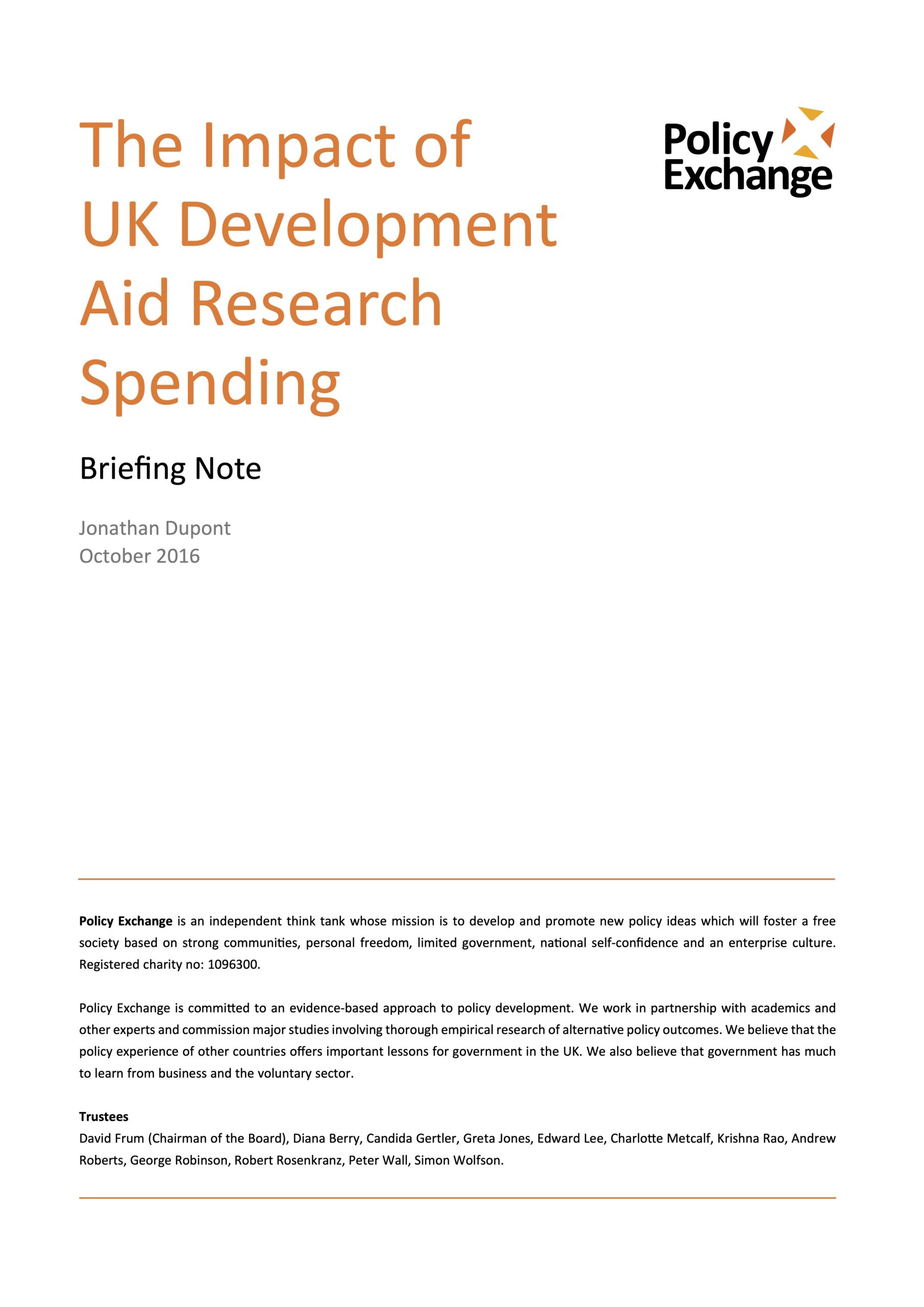
The Impact of Development Aid Research Funding
The new Government has three central priorities: securing a new role for the world for Britain in the wake of Brexit, designing a forward looking Industrial Strategy and ensuring social justice. The £2.5 billion in development research spending announced in the Government’s new aid strategy looks to do all three: continuing Britain’s role as world leader in development, catalysing investment in new industries or technologies, and making a serious contribution to addressing global challenges like antimicrobial resistance or food shortages.
Over the next few months, Policy Exchange will be conducting a programme of work to investigate how development spending on R&D can support both the global and national interest, helping address the world’s most pressing problems and supporting Britain’s new Industrial Strategy. Our report will feature a contribution from George Freeman MP, Chairman of the Prime Minister’s new No 10 Policy Board and Minister for Life Sciences, 2014-2016, responsible for U.K. global health research, and is kindly supported by The Bill and Melinda Gates Foundation.
In this briefing note, we give an overview of the current evidence on the impact of development spending in R&D, with a particular focus on life sciences, the jewel in the crown of the UK economy. In general, public investments in R&D can deliver a social rate of return of 20%, while the health spending element in the new funding could conceivably save in the order of two million lives through developing new vaccines and treatments.

